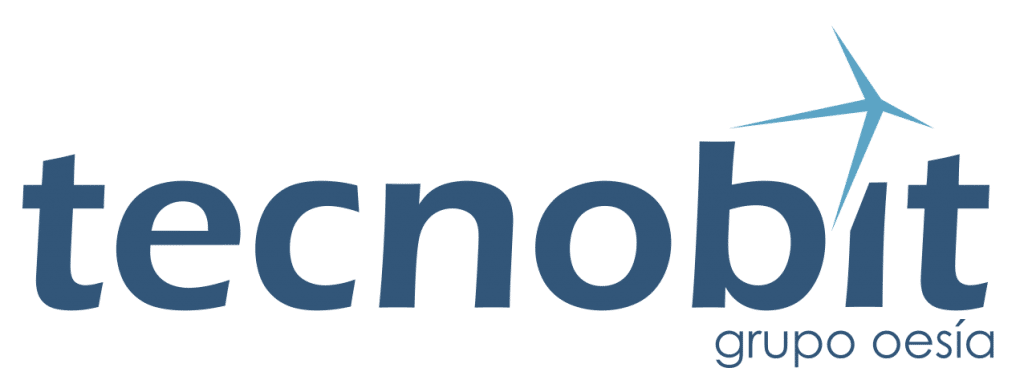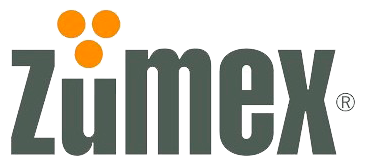Over the past decade, leading manufacturing companies have shifted towards using 3D models as the primary source of product information, known as Model-Based Definition (MBD). This transition, part of the Model-Based Enterprise (MBE) strategy, aims for seamless integration throughout the product lifecycle. However, the economic impact of low-quality 3D CAD models in industrial settings remains understudied, hindering progress in this crucial area.
The CAD-Q project addresses this gap by conducting the first international study focused on the scope and scale of poor CAD quality in industrial environments. By employing qualitative and quantitative research methods, CAD-Q aims to raise awareness and provide valuable insights into this overlooked issue. Disseminating the findings of the CAD-Q project will not only increase awareness but also provide essential reference material for researchers and professionals. By offering modeling methodologies and validation frameworks, CAD-Q seeks to improve the creation of high-quality 3D CAD models, thus advancing CAD technology and supporting the digital transformation of Spanish industrial sectors.
Aligned with the State Plan for Scientific, Technical and Innovation Research 2021-2023, the CAD-Q project contributes to the thematic priority of digital transformation in Spanish industries. As companies embrace Industry 4.0 principles, the transition to a Model-Based Enterprise becomes crucial, with high-quality CAD models playing a central role in design, analysis, and manufacturing activities. Through its focus on formal modeling methodologies, CAD-Q aims to address development cost and delay issues associated with poor CAD quality, ultimately supporting Spain’s industrial digitalization efforts.
Social and economic impact of the expected results
It is commonly assumed that creating a parametric 3D model in modern CAD systems ensures easy modification and reuse. However, CAD systems offer numerous construction alternatives, and how the model is built is crucial. Many companies, unable to edit parametric models, resort to direct editing strategies, missing out on the benefits of parametric geometry for automatic generation of alternatives and design optimization. This project will provide tested formal modeling methodologies freely to industries using parametric CAD systems, with positive economic impacts. Furthermore, the scientific outputs of CAD-Q align with Sustainable Development Goals (SDGs), particularly:
- Goal 8: Promote sustained, inclusive economic growth and decent work.
- Goal 9: Build resilient infrastructure and foster innovation.
- Goal 16: Promote inclusive societies and ensure public access to information.
Scientific communication and internationalization of the results
Our dissemination plan outlines the production of two impactful articles annually, totaling at least six indexed papers with four in the top quartile of JCR. Additionally, we aim to participate in one highly-ranked international conference each year. Priority will be given to journal publications if funds are limited. Targeted journals include Computer-Aided Design, Computers in Industry, and Journal of Mechanical Design, among others.
Relevant conferences for our project include CAD Conference, ASME IDETC/CIE, and ASME IMECE. While our conference participation is limited to control costs, we will maintain a strong social presence on platforms like ResearchGate and LinkedIn for efficient dissemination. All publications will be openly accessible through institutional repositories, ensuring maximum visibility. We aim to strengthen our international standing by inviting renowned experts like Prof. Ferrucio Mandorli and facilitating collaboration with institutions like Purdue University. These efforts will bolster our research team’s visibility and establish a robust international network in our field.
Dissemination of the results to the most relevant groups for the theme of the project and to society in general
We intend to use the business associations of those sectors that use CAD modeling tools intensively to serve as a communication vehicle with their associated companies.
AUTOMOTIVE INDUSTRY
ACICAE, el Cluster de la Automoción de Euskadi, CIAC Clúster de la Indústria de l’Automoció de Catalunya, MCA Madrid Cluster de Automoción, AVIA Asociación Valenciana de la Industria de la Automoción.
MACHINE TOOL INDUSTRY
AIMME (Asociación de la Industria Metal-Mecánica de la Comunitat Valenciana), AFM (Asociación de Fabricantes de Máquinas-herramienta), ANSEMAT (Asociación Nacional de Maquinaria Agropecuaria, Forestal y de Espacios Verdes), SERCOBE (Asociación Nacional de Fabricantes de Bienes de Equipo).
AEROSPACE INDUSTRY
TEDAE (Asociación Española de Empresas Tecnológicas de Defensa, Aeronáutica y Espacio), Espai Aero (Clúster Aeroespacial de la Comunidad Valenciana), Andalucía Aerospace.
The modeling methodologies developed in this project will also be applicable to CAD education and technical training. They will support an approach to strategic CAD teaching infused with a culture of quality from the beginning of training. CAD professionals that are better prepared will be more productive and generate a positive impact on the companies that employ them. For this group, specific actions will be made to inform of the results of the CAD-Q project:
- University professors in areas related to CAD: the project will be disseminated through the associations INGEGRAF (Asociación de Profesores de Expresión Gráfica en la Ingeniería) and AEIPRO (Asociación de los Profesionales de la Dirección e Ingeniería de Proyectos de España).
- Main software vendors of CAD solutions in Spain that provide technical training.
Transfer plan and valorization of results
Although the CAD-Q project is geared toward the development of new scientific knowledge, the software tools that will be developed in the project to support the development of the modeling methodologies and training materials to learn how to implement the developed methodologies could potentially become the core technology of a commercial training online service in the future. There are four main industrial partners that have expressed interest in the project results:




Summary´s management plan of the planned data
The data generated in this project will come from experiments and the associated developments. More specifically, CAD models and associated documents, software prototypes, source code, reports, questionnaire results, and draft manuscripts will be generated. The data will be generated in the following formats: CAD native formats, exe, dll, vb, csv, docx, and pdf. Data sizes are not known a priori, but will be less than 10 GB in total, with files smaller than 100 MB.
Documentation and quality of data
The standard metadata used to describe our data set will be the Dublin Core Schema. A directory will be created for each data type, and the file name will follow the following schema: <PTno>_<Serial Number>_<Title>. For versioning, the Subversion Version Control System (SVN) will be used. In addition, a README.txt file will be created which will accompany the other files with the research data. A template created by the UPV will be used indicating the methodology used, variables used, etc.
Storage and backup
To guarantee that the data is FAIR, the OneDrive service that the UPV subscribes to will be used to store and manage the data and metadata generated. A group consisting of the project researchers will be created to share the information. Researchers will be identified using the UPV authentication system. As for security, the service guarantees the integrity of the data as well as compliance with Spanish data protection regulations (LOPD) and security in services (ENS). The raw data will be permanently kept in a specific folder.
Legal and ethical requirements, codes of conduct
All activities carried out in this project comply with the ethical principles and European and international legislation in this area. The project will not store personal data. Regarding accessibility, the data associated with scientific publications will be openly available except for the code and documents that compromise the protection of the intellectual property of a third party. In any case, the Data Protection Policy of the Polytechnic University of Valencia is complied with, which is committed to an ethical and lawful use of the data.
Long-term data exchange and preservation
The data will be offered upon request to researchers and will be accessible as soon as they are disseminated through scientific publications. There are no restrictions on the use of published data, but users should cite the consortium and source in any resulting publication. As for preservation, since it will not be a high volume of data and it could be reused, it will be stored in the ZENODO research data repository, or in the RiuNet institutional repository of the UPV. In the repository, a DOI will be assigned to the data, they will be described with the corresponding metadata scheme, complying with the Openaire 4.0 guidelines, and those data that may be in open access will be accompanied under the Creative Commons BY-NC-ND License to their reuse. All this will be detailed in a complete Data Management Plan, which will be prepared using the ARGOS platform.
Data management responsibilities and resources
The project PI1 has ultimate responsibility for data management in the project. The costs of depositing the dataset with the project and the subsequent resources required for the dataset to be publicly available will be covered as part of the UPV’s service cost.
Effects of gender inclusion in the content of the proposal
The proposed project is gender-neutral because it is aimed at improving a critical technology for industrial design, in which there is no direct influence of the designer’s gender. In addition, the research team includes women. That said, in the development of the project, special attention will be paid to the equality plans already in use in our universities.
The UPV has a clear commitment to incorporate the gender dimension in research activity, as specified in the III Equality Plan of the Polytechnic University of Valencia (2021-2024), which includes a specific axis of Research, Innovation and Transfer with a focus on Gender and Sexuality. Diversity perspective. The European Commission network to promote research mobility has recognized the Polytechnic University of Valencia with the HR Excellence in Research seal (HRS4R) for its commitment to continuous improvement of its human resources policies in accordance with the European Charter for Researchers and the Code of Conduct for the Recruitment of Researchers. Likewise, the UPV has an Equality Unit, which is in charge of promoting and developing transversal policies and their actions in the field of equality between women and men, among others, within the framework of the university.